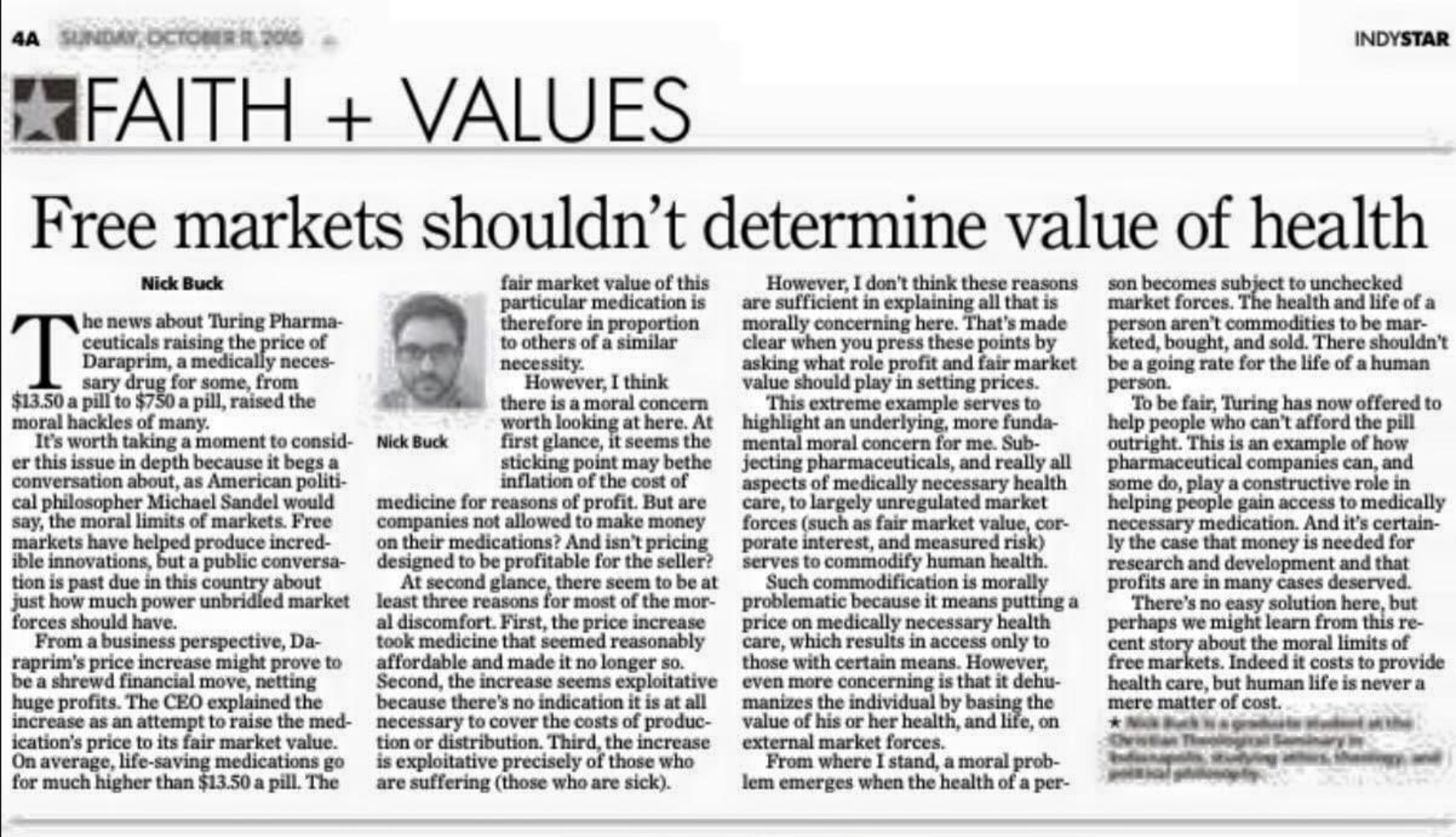”Free markets shouldn’t determine the value of health”
Published in the “Faith & Values” section of The Indianapolis Star on October 11, 2015
FULL TEXT:
The news about Turing Pharmaceuticals raising the price of Daraprim, a medically necessary drug for some, from $13.50 a pill to $750 a pill, raised the moral hackles of many.
It’s worth taking a moment to consider this issue in depth because it begs a conversation about, as American political philosopher Michael Sandel would say, the moral limits of markets. Free markets have helped produce incredible innovations, but a public conversation is past due in this country about just how much power unbridled market forces should have.
From a business perspective, Daraprim’s price increase might prove to be a shrewd financial move, netting huge profits. The CEO explained the increase as an attempt to raise the medication’s price to its fair market value. On average, life-saving medications go for much higher than $13.50 a pill. The fair market value of this particular medication is therefore in proportion to others of a similar necessity.
However, I think there is a moral concern worth looking at here. At first glance, it seems the sticking point might be the inflation of the cost of medicine for reasons of profit. But are companies not allowed to make money on their medications? And isn’t pricing designed to be profitable for the seller?
At second glance, there seem to be at least three reasons for most of the moral discomfort. First, the price increase took medicine that seemed reasonably affordable and made it no longer so. Second, the increase seems exploitative because there’s no indication it is at all necessary to cover the costs of production or distribution. Third, the increase is exploitative precisely of those who are suffering (those who are sick).
However, I don’t think these reasons are sufficient in explaining all that is morally concerning here. That’s made clear when you press these points by asking what role profit and fair market value should play in setting prices.
This extreme example serves to highlight an underlying, more fundamental moral concern for me. Subjecting pharmaceuticals, and really all aspects of medically necessary health care, to largely unregulated market forces (such as fair market value, corporate interest, and measured risk) serves to commodify human health.
Such commodification is morally problematic because it means putting a price on medically necessary health care, which results in access only to those with certain means. However, even more concerning is that it dehumanizes the individual by basing the value of his or her health, and life, on external market forces.
From where I stand, a moral problem emerges when the health of a person becomes subject to unchecked market forces. The health and life of a person aren’t commodities to be marketed, bought, and sold. There shouldn’t be a going rate for the life of a human person.
To be fair, Turing has now offered to help people who can’t afford the pill outright. This is an example of how pharmaceutical companies can, and some do, play a constructive role in helping people gain access to medically necessary medication. And it’s certainly the case that money is needed for research and development and that profits are in many cases deserved.
There’s no easy solution here, but perhaps we might learn from this recent story about the moral limits of free markets. Indeed it costs to provide health care, but human life is never a mere matter of cost.
